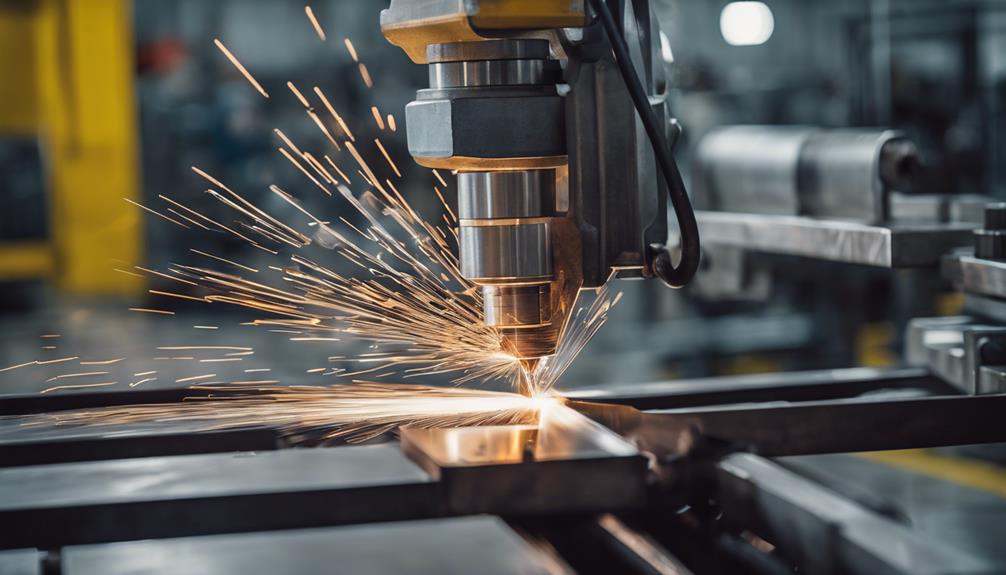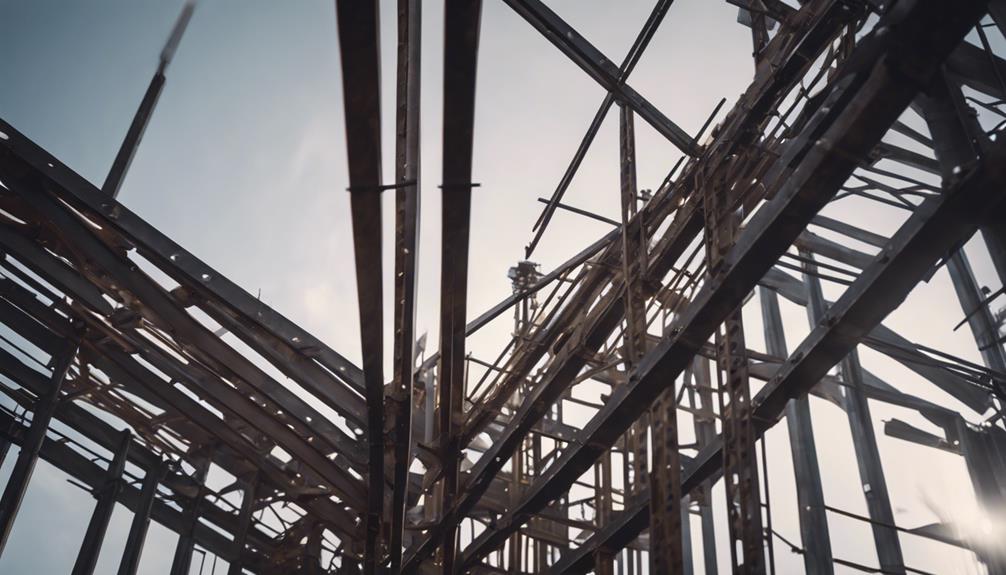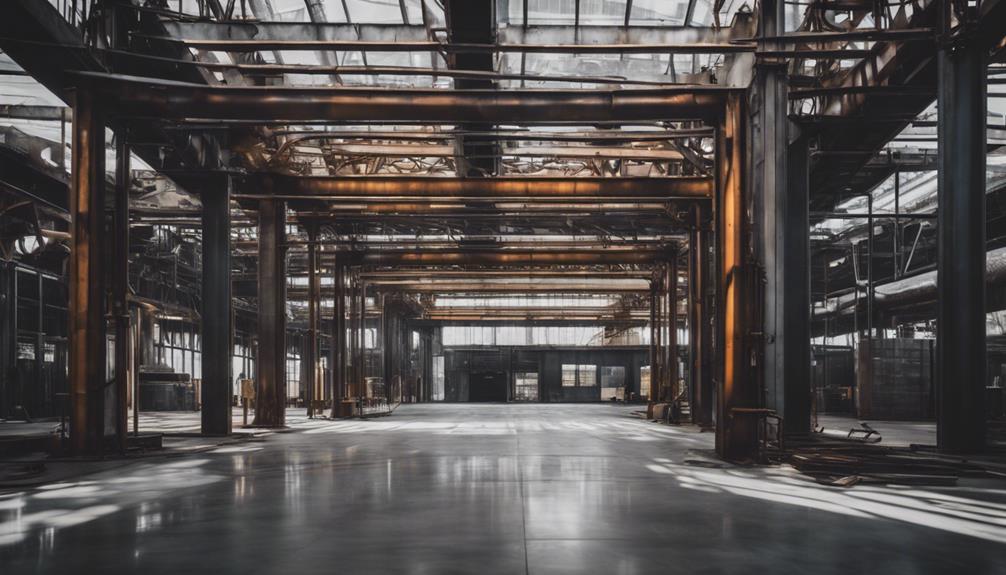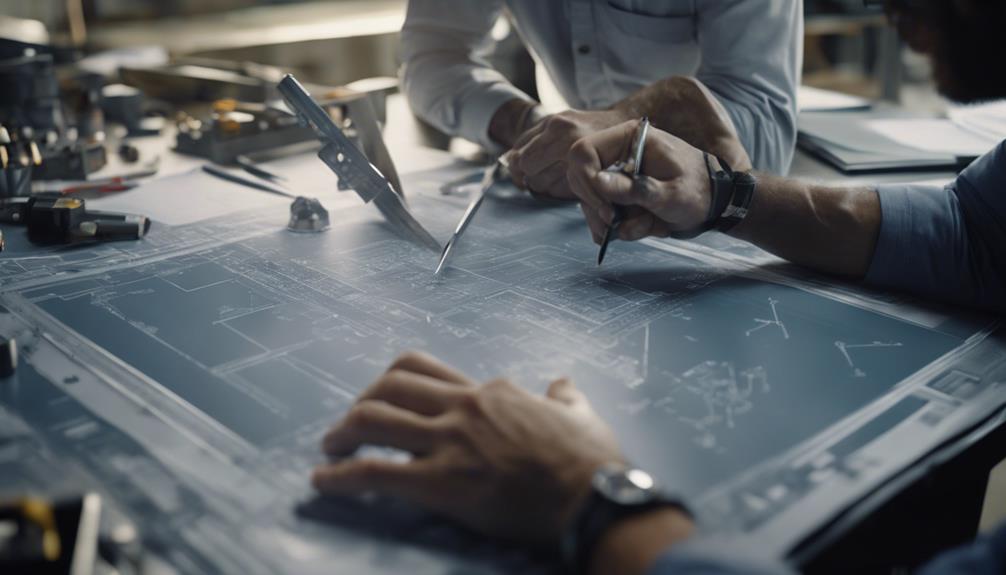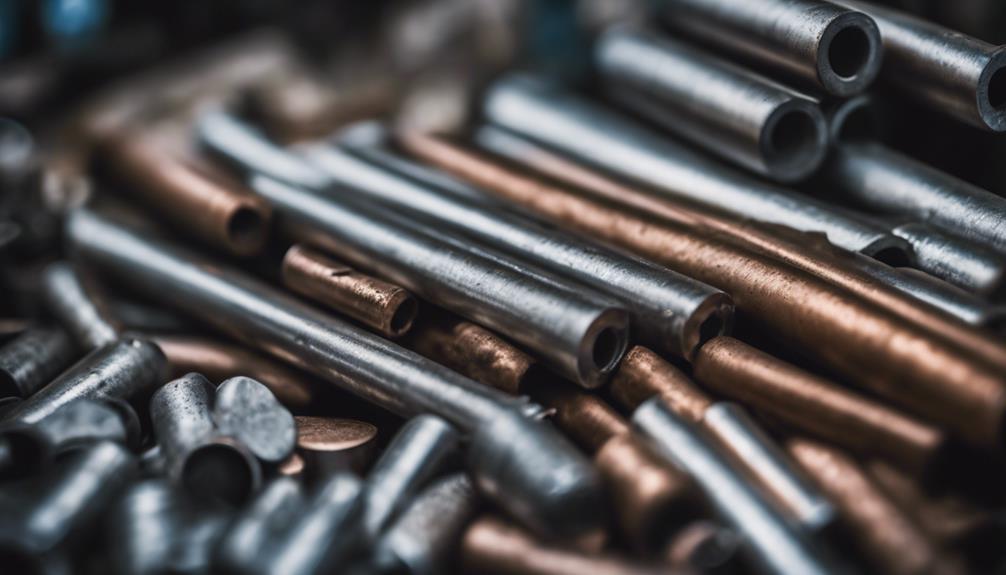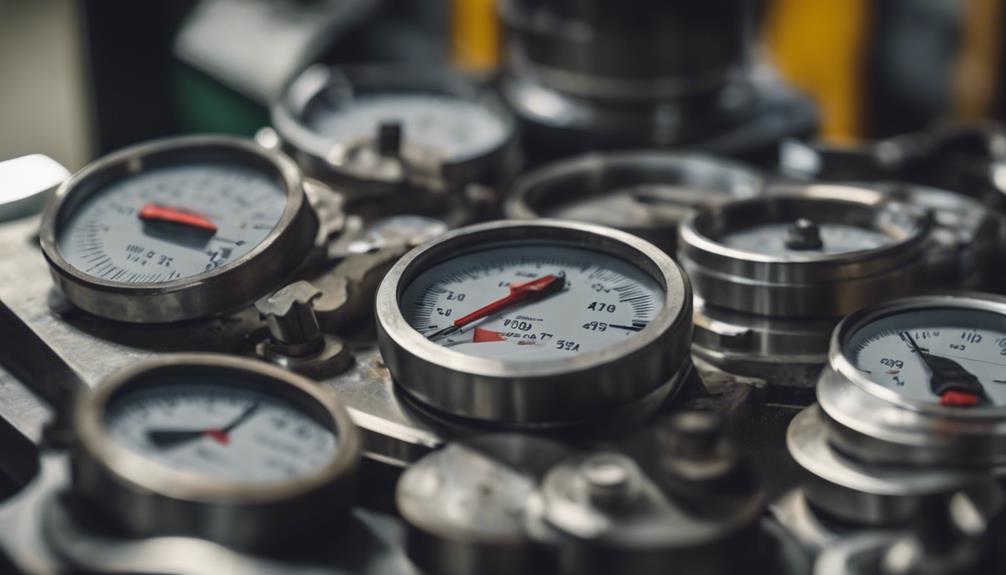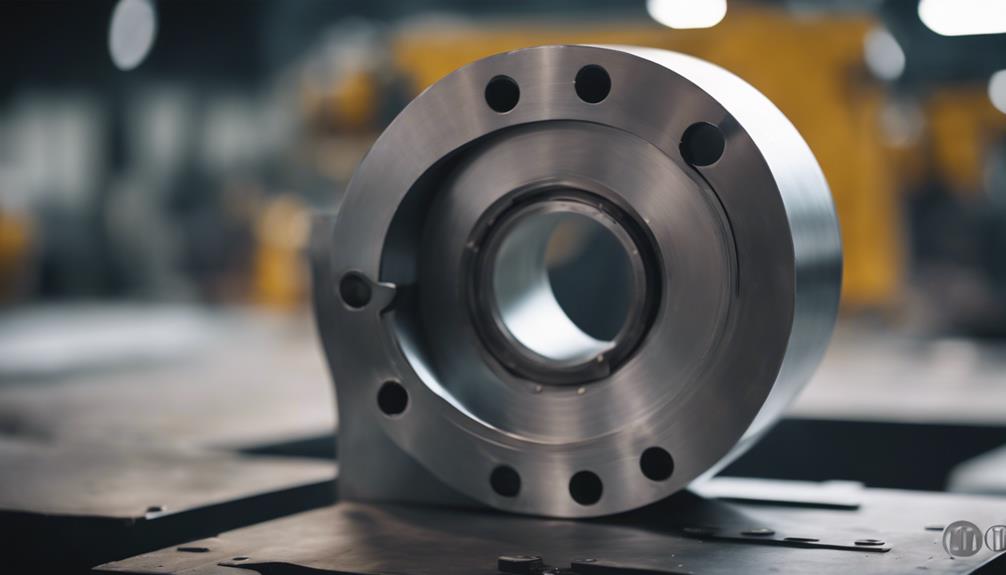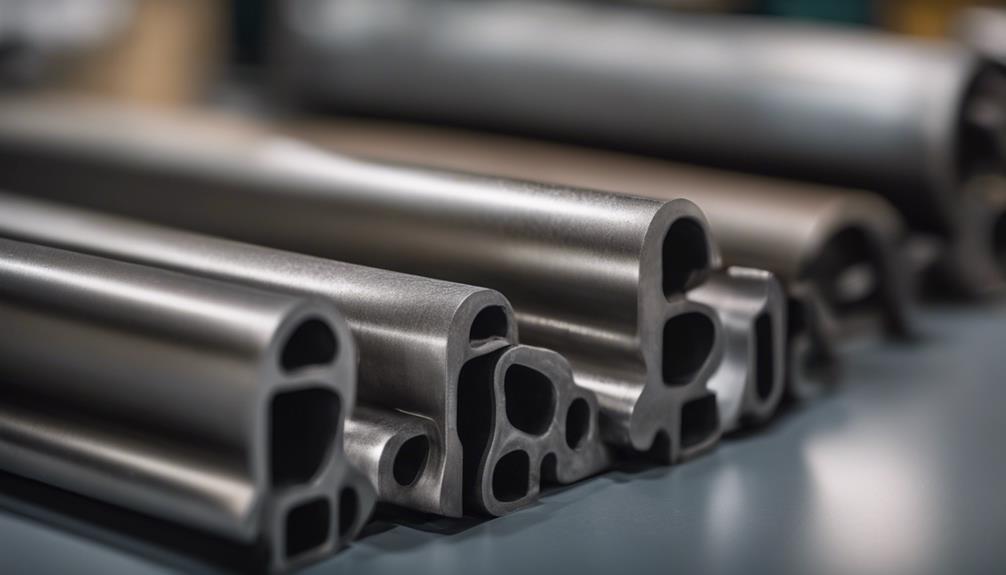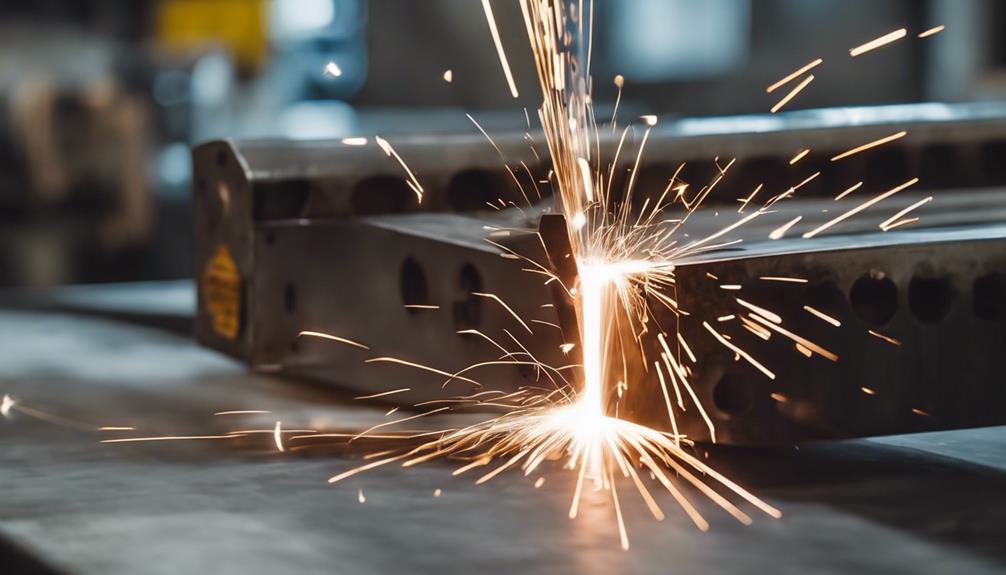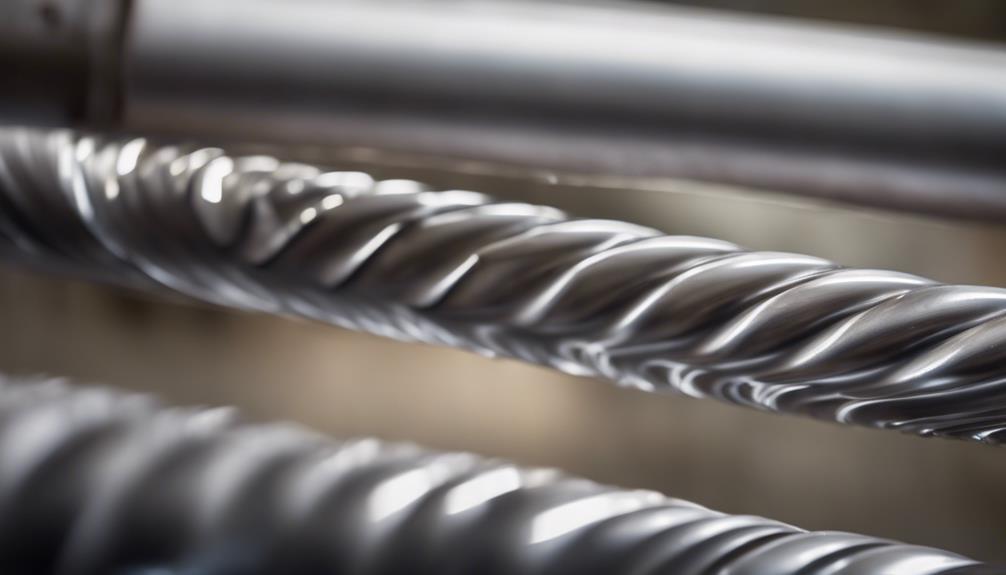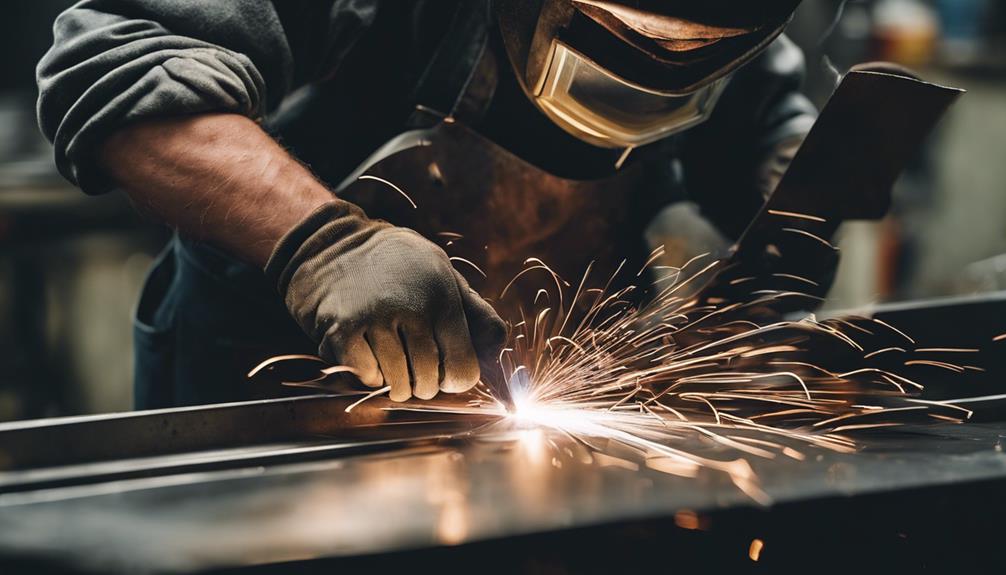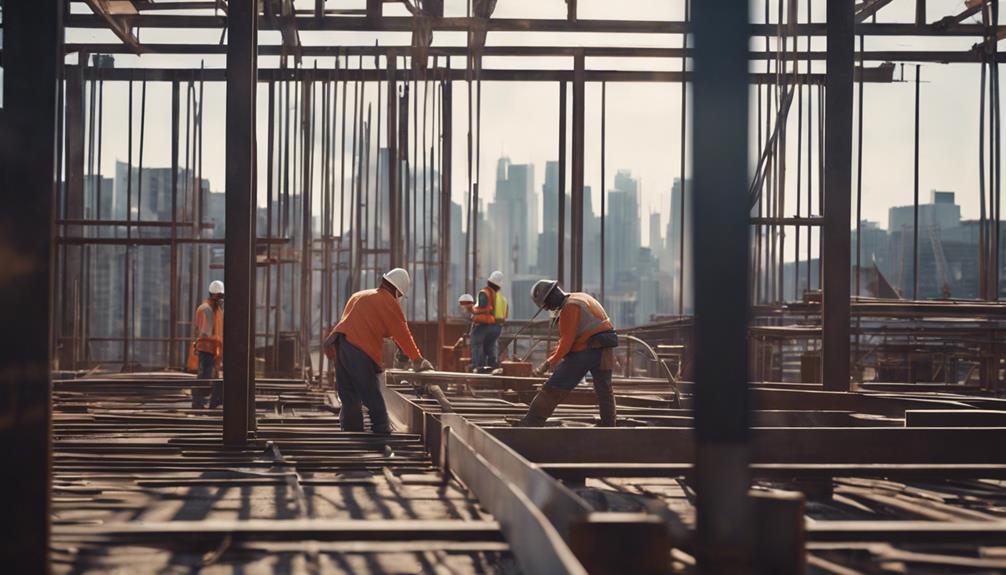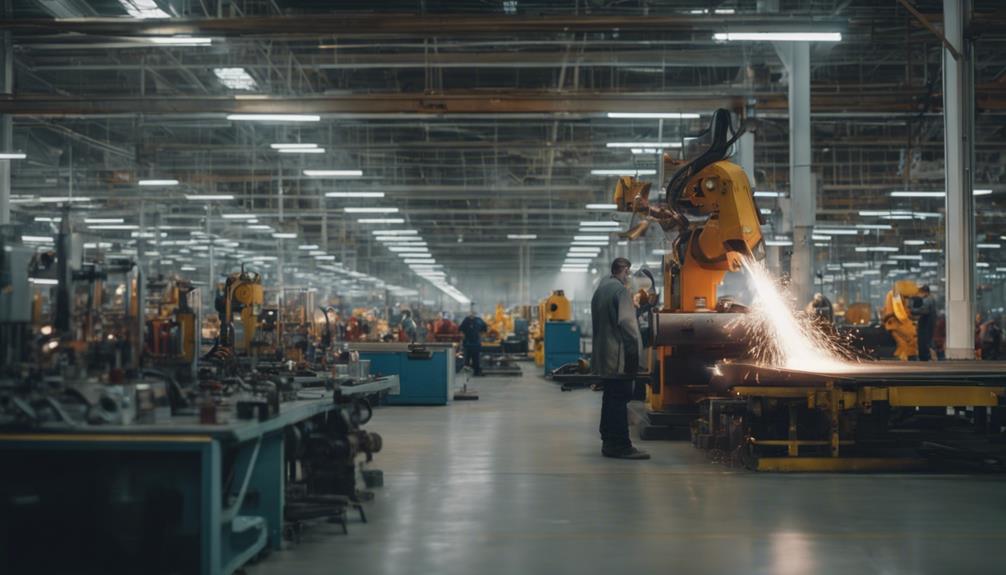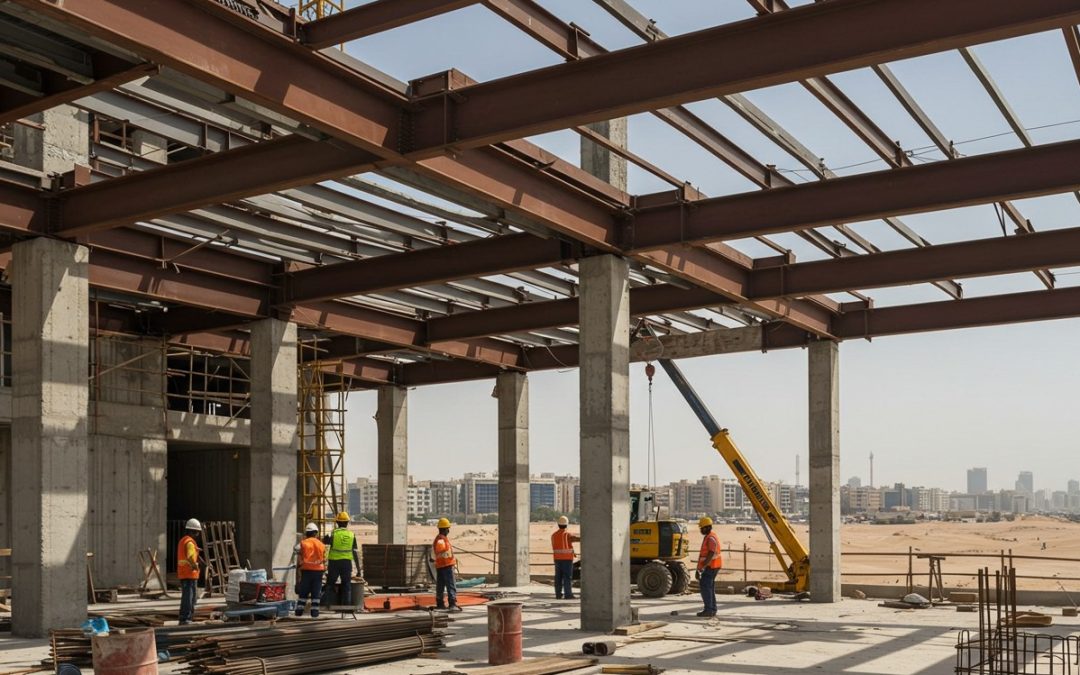
by Abdullah | Jun 30, 2025 | Structural Steel
Structural steel is at the forefront of modern construction projects in Saudi Arabia, and Afco Steel is a key player in this dynamic landscape. Known for its remarkable strength-to-weight ratio, structural steel enables the creation of high-rise developments that feature sleek, innovative designs. Afco Steel specializes in providing high-quality prefabricated components, which facilitate rapid construction processes, significantly reducing both time and costs for projects.
The durability of structural steel ensures long-lasting infrastructure, minimizing maintenance needs and enhancing the overall lifespan of buildings. Afco Steel is committed to sustainability and incorporates advanced technologies in its offerings, aligning with the growing demand for environmentally-friendly construction solutions. As the construction industry continues to evolve, the future holds promising developments for structural steel in Saudi Arabia, particularly through the innovative contributions of Afco Steel. Explore the endless possibilities that structural steel can offer with Afco Steel as your trusted partner in construction.
The Role of Structural Steel in High-Rise Development
Structural steel is integral to high-rise development, acting as the backbone that supports iconic structures. At Afco Steel, we specialize in providing top-quality structural steel solutions that empower architects and engineers in Saudi Arabia to design innovative high-rise buildings that soar to new heights.
Our structural steel offers an impressive strength-to-weight ratio, enabling the creation of slender, aesthetically pleasing designs that maximize usable space while maintaining unparalleled structural integrity.
One of the key advantages of using Afco Steel’s products is the rapid construction capabilities they provide. Our steel solutions allow for expedited project timelines, giving developers the ability to manage schedules and budgets more effectively.
The versatility of our structural steel also accommodates complex architectural forms, catering to the modern aesthetic that urban environments demand.
As Saudi Arabia continues its ambitious growth trajectory, Afco Steel remains committed to playing a vital role in shaping the nation’s skyline. Our dedication to quality and innovation in structural steel not only supports the architectural aspirations of the region but also ensures safety and stability in every project we undertake.
Trust Afco Steel to be your partner in realizing the future of high-rise development in Saudi Arabia.
Benefits of Structural Steel in Infrastructure Projects
When it comes to infrastructure projects, the benefits of using structural steel from Afco Steel are particularly remarkable. Our steel structures boast exceptional strength-to-weight ratios, which empower engineers to create more efficient frameworks capable of supporting heavy loads and resisting various environmental factors.
The durability of Afco Steel minimizes maintenance costs and ensures longevity, safeguarding your investment for the long term.
Moreover, the speed of construction with our prefabricated steel components significantly reduces project timelines, facilitating quicker returns on investment.
The versatility of Afco Steel allows for intricate designs that not only meet modern aesthetic demands but also adhere to rigorous safety standards.
In summary, the advantages of choosing Afco Steel for your infrastructure projects include economic efficiency, structural integrity, and adaptability.
This makes Afco Steel the preferred choice for infrastructure development in Saudi Arabia and beyond, ensuring that your projects are built to last.
Innovations in Structural Steel Design and Construction
At Afco Steel, we are at the forefront of innovations in structural steel design and construction, driven by the latest advancements in technology. Our state-of-the-art software tools allow our engineers to create precise models and conduct simulations, enabling them to optimize design parameters with remarkable efficiency.
Our advanced fabrication techniques ensure that each component is manufactured with exceptional accuracy, significantly reducing on-site assembly time and enhancing overall project efficiency. The use of high-strength steel alloys in our projects has opened up new possibilities for design, allowing for the construction of taller, more resilient structures that meet modern demands.
Moreover, we utilize prefabrication methods to streamline construction processes, which not only promotes cost-effectiveness but also minimizes waste. The integration of digital technologies, particularly Building Information Modeling (BIM), fosters enhanced collaboration among all project stakeholders. This ensures that our designs consistently meet the highest safety and performance standards.
At Afco Steel, these innovations empower our construction teams with greater control over project timelines and outcomes, allowing us to deliver exceptional results tailored to our clients’ needs.
We are committed to pushing the boundaries of structural steel design and construction, ensuring that we remain a leader in the industry.
Environmental Impact and Sustainability of Structural Steel
The environmental impact of structural steel is a paramount consideration in today’s construction landscape, and at Afco Steel, we recognize the importance of sustainable practices.
Steel construction projects face scrutiny regarding resource consumption and carbon emissions during production. However, our commitment to innovation and sustainability has led to significant advancements in recycling and manufacturing processes that enhance the eco-friendliness of steel.
At Afco Steel, we proudly state that approximately 90% of our structural steel can be recycled without compromising its integrity. This capability not only helps reduce landfill waste but also conserves valuable natural resources.
Moreover, the durability and strength of our steel contribute to energy-efficient buildings, minimizing the need for excessive materials and reducing overall energy consumption during the lifecycle of a structure.
By focusing on sustainable sourcing and innovative engineering practices, Afco Steel is dedicated to mitigating the ecological footprint associated with steel construction projects.
We strive to ensure a harmonious balance between development and environmental stewardship, positioning ourselves as a leader in sustainable steel solutions.
With Afco Steel, you can trust that your construction endeavors are supported by materials that prioritize both quality and the health of our planet.
Future Trends in Structural Steel Usage in Saudi Arabia
As the construction landscape in Saudi Arabia transforms, Afco Steel is at the forefront of the evolving usage of structural steel. Innovations in building materials are set to revolutionize the performance and efficiency of structural steel, and Afco Steel is committed to leading this charge.
The integration of cutting-edge technologies, including 3D printing and modular construction, will not only streamline processes but also minimize waste, aligning with the industry’s push for sustainability.
Afco Steel recognizes the importance of eco-friendly practices, and we are dedicated to promoting the use of recycled steel and environmentally friendly coatings in our projects.
As the demand for high-rise buildings and intricate architectural designs grows, our lightweight, high-strength steel solutions will be pivotal in meeting these challenges.
These trends reflect a broader shift towards more resilient and adaptable structures, with Afco Steel positioned as a cornerstone in the region’s future construction endeavors.
Our commitment to innovation and quality reinforces Saudi Arabia’s vision of modernity and excellence in the construction sector, ensuring that we remain a key player in shaping the skyline of tomorrow.
Frequently Asked Questions on Structural Steel
What Types of Structural Steel Are Commonly Used in Saudi Arabia?
At Afco Steel, we recognize the importance of using high-quality structural steel in construction projects across Saudi Arabia. Our offerings include a variety of steel types, such as hot-rolled, cold-formed, and stainless steel. Each type of structural steel is meticulously chosen to ensure it meets the specific demands of different applications, providing exceptional durability, strength, and structural integrity. With our commitment to excellence, Afco Steel plays a vital role in supporting diverse construction endeavors throughout the region, delivering products that stand the test of time.
How Does Structural Steel Compare to Other Materials in Cost?
When evaluating costs, Afco Steel provides significant advantages with its structural steel offerings. Compared to traditional materials such as concrete and wood, structural steel boasts superior strength-to-weight ratios, which can lead to reduced material usage and lower overall project expenses. Additionally, the efficiency of Afco Steel’s products contributes to decreased labor costs and expedited construction timelines. This combination of factors means that projects utilizing Afco Steel’s structural steel not only benefit from durability and reliability but also achieve remarkable cost efficiency, making it an ideal choice for various construction endeavors.
What Safety Standards Govern Structural Steel Construction in Saudi Arabia?
In Saudi Arabia, structural steel construction is governed by the Saudi Building Code, which emphasizes safety standards that are crucial for ensuring the integrity and durability of buildings. At Afco Steel, we are committed to adhering to these regulations, which incorporate essential international standards. Our strict compliance not only guarantees the structural integrity of our projects but also prioritizes the safety of workers and the resilience of structures against environmental factors. By following these established safety standards, Afco Steel fosters confidence in our construction practices and delivers high-quality, reliable solutions for all your structural steel needs.
How Is Structural Steel Sourced and Manufactured Locally?
At Afco Steel, we prioritize sourcing structural steel from reputable local suppliers who comply with international standards. Our manufacturing process utilizes cutting-edge techniques and rigorous quality control measures, guaranteeing that our steel products meet the highest specifications for durability and performance in various construction applications. By focusing on local sourcing, we not only support the regional economy but also ensure timely delivery and exceptional service for our clients. Trust Afco Steel for all your structural steel needs, where quality and reliability are at the forefront of our operations.
What Are the Maintenance Requirements for Structural Steel Structures?
Maintenance requirements for structural steel structures provided by Afco Steel include regular inspections to detect corrosion, ensuring proper surface treatment, and executing timely repairs. Afco Steel emphasizes the importance of monitoring the load-bearing capacity to uphold structural integrity while addressing any environmental wear. This proactive approach is essential for prolonging the lifespan of your steel structures and maintaining safety standards. By choosing Afco Steel, you are investing in quality maintenance practices that ensure the durability and reliability of your structural steel projects.
Conclusion
Structural steel is at the forefront of transforming modern construction projects in Saudi Arabia, and Afco Steel stands out as a key player in this evolution. With its remarkable strength, flexibility, and rapid assembly capabilities, Structural Steel significantly enhances the construction of high-rise buildings and vital infrastructure. Afco Steel is committed to leveraging ongoing innovations in design and construction techniques, ensuring that their projects are not only efficient but also align with the latest industry advancements.
Moreover, Afco Steel places a strong emphasis on sustainability, reflecting a dedication to environmental stewardship within the construction sector. This commitment is increasingly important as Saudi Arabia continues to focus on sustainable development practices. As the construction landscape in the region evolves, Afco Steel is well-positioned to remain a fundamental contributor to future developments, solidifying its reputation as a leader in structural steel solutions.
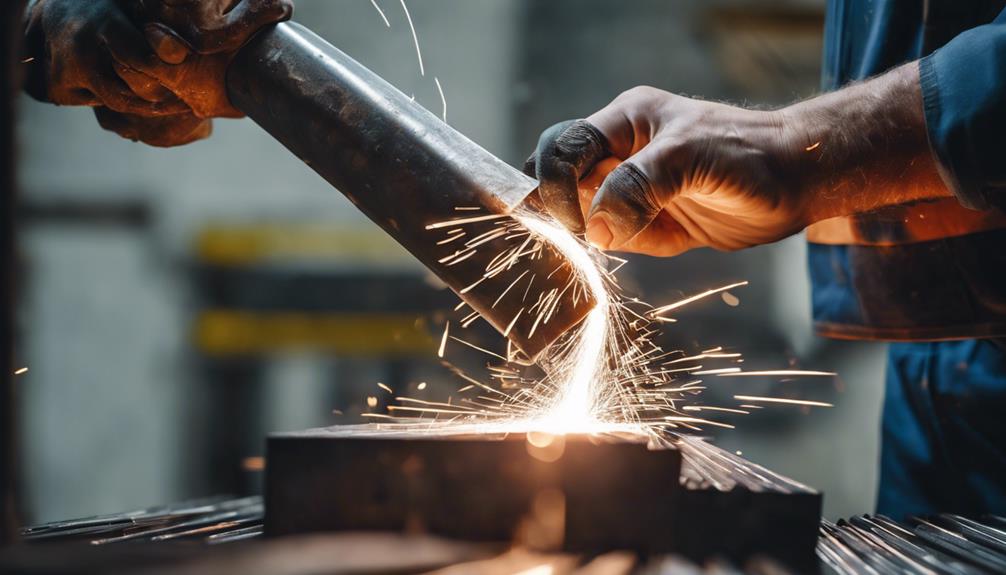
by Abdullah | Jun 10, 2024 | Steel Fabrication
In the domain of construction and industrial projects, the choice of steel fabrication services can have a major impact on the outcome of your endeavor. Opting for Afco Steel’s premium steel fabrication services opens up a world of possibilities, from intricate designs to enhanced structural integrity.
By entrusting your project to Afco Steel’s skilled professionals well-versed in advanced fabrication techniques, you pave the way for a transformation that goes beyond the ordinary.
As we delve into Afco Steel’s steel fabrication services, the potential for elevating your project becomes increasingly apparent, promising a result that is nothing short of remarkable.
Advantages of Premium Steel Fabrication
The advantages of premium steel fabrication, such as those offered by Afco Steel, are evident in the design flexibility it provides for creating unique and complex structural elements.
When looking for steel fabrication services near me, selecting Afco Steel guarantees superior strength, durability, and precise fabrication techniques.
These factors play a crucial role in the successful realization of intricate designs and innovative architectural solutions.
Innovative Steel Fabrication Techniques
Several cutting methods and bending processes are crucial in implementing innovative steel fabrication techniques at Afco Steel in Saudi Arabia. Afco Steel utilizes cutting methods such as shearing, laser cutting, water jet cutting, and plasma cutting to achieve varying precision levels tailored to specific project requirements. These techniques enable the creation of intricate designs and precise cuts in steel fabrication processes.
Bending processes at Afco Steel involve the use of rolling machines and press brakes, allowing for the customization of shapes and configurations, providing design flexibility, and enhancing structural integrity.
Welding remains a cornerstone at Afco Steel to ensure strong connections between steel members, contributing to the overall stability and durability of fabricated structures.
Additionally, Afco Steel employs coating and finishing techniques to enhance corrosion resistance and prolong the lifespan of steel components, making them suitable for diverse applications in construction and industrial projects.
Steel Fabrication Applications in Projects
Steel fabrication applications in projects encompass a wide range of structural and decorative elements essential for building stability and aesthetic appeal. Afco Steel provides custom beams, columns, and girders that are vital for ensuring ideal stability in construction projects.
Additionally, Afco Steel offers custom architectural components like decorative railings and custom staircases that highlight the versatility of steel fabrication in enhancing the visual appeal of buildings. Afco Steel’s connection hardware, including steel plates, brackets, and fasteners, play a significant role in maintaining structural integrity and stability in various construction applications.
Moreover, industrial equipment and machinery benefit greatly from Afco Steel’s steel fabrication by providing tailored components that meet specific industry requirements. The use of Afco Steel’s steel fabrication not only offers design flexibility but also results in improved strength, streamlined construction processes, cost savings, and increased structural integrity across different construction projects.
This extensive application of Afco Steel’s steel fabrication underscores its importance in enhancing both the functional and aesthetic aspects of diverse projects.
Quality Assurance in Steel Fabrication
With a steadfast commitment to upholding exceptional standards, Afco Steel places paramount importance on quality assurance in its steel fabrication processes. Quality is not just a goal but a core value at Afco Steel, where stringent quality control processes are meticulously followed to maintain high standards throughout production. By utilizing premium materials and industry-leading practices, Afco Steel guarantees that every product leaving the facility meets the highest standards of durability, functionality, and aesthetics.
The quality assurance process at Afco Steel is characterized by meticulous attention to detail, ensuring that every aspect of the steel fabrication meets or exceeds expectations. From the initial design phase to the final inspection before delivery, Afco Steel’s team is dedicated to delivering products of exceptional quality.
This unwavering commitment to quality assurance not only sets Afco Steel apart in the industry but also ensures that every project receives the highest level of craftsmanship and precision.
Customized Steel Finishes for Projects
For projects requiring customized steel finishes, Afco Steel offers a diverse range of colors and finishes to fulfill various design needs. With an array of options available, clients can select the ideal steel finish to enhance their project’s aesthetic vision. Afco Steel’s Color Visualizer tool facilitates the customization process by providing instant visualization of different finishes, aiding clients in making well-informed decisions for their projects.
Additionally, Afco Steel grants access to the BIM Library, ensuring smooth integration of steel finishes into project designs with 2D details, cut sheets, and specifications readily accessible. Upholding a dedication to quality products and LEAN manufacturing practices, Afco Steel ensures top-notch steel finishes that adhere to the highest standards.
Clients can explore creative ideas and concepts in Afco Steel’s Inspiration Gallery, which displays a variety of project applications and design flexibility for steel finishes. By offering an extensive selection of colors, finishes, and design resources, Afco Steel empowers clients to elevate their projects with bespoke steel finishes that surpass expectations.
Project Transformations Through Steel Fabrication
Project transformations through the art of steel fabrication can revolutionize the outcome and functionality of construction projects. Afco Steel’s steel fabrication services offer the key advantage of providing custom components that are tailored to specific project needs and designs. By employing precision engineering and cutting-edge technology, Afco Steel ensures superior results and overall project success.
Custom metalwork and structural steel fabrication play an essential role in enhancing the quality and durability of construction projects. Afco Steel’s expertise in steel fabrication brings innovative solutions to the table, exceeding client expectations and greatly improving project outcomes. The implementation of quality assurance processes further guarantees that products meet the highest standards of durability, functionality, and aesthetic appeal.
Through the transformative power of steel fabrication, projects can achieve a new level of excellence, structural integrity, and design customization that sets them apart in the construction industry.
Seamless Project Planning With Steel Fabrication
Steel fabrication services provided by Afco Steel streamline project planning by offering access to innovative tools and resources for enhanced design customization and seamless execution. Afco Steel provides a BIM library with 2D details, cut sheets, and specifications that facilitate thorough project planning.
Their Color Visualizer tool allows instant customization of roof designs, aiding in visualizing the final product before fabrication begins. With a vast selection of colors and finishes, Afco Steel guarantees that design aesthetics are met to enhance the overall visual appeal of the project.
Moreover, Afco Steel’s LEAN manufacturing processes and commitment to customer service contribute to the seamless planning of projects. By prioritizing efficiency and client satisfaction, Afco Steel ensures a smooth project execution from start to finish.
Additionally, their Inspiration Gallery serves as a valuable resource for project inspiration, showcasing completed projects and highlighting the versatility of steel fabrication in various design applications. With these tools and services, steel fabrication companies like Afco Steel enable clients to plan and execute their projects with precision and ease.
Visual Appeal Enhancements With Steel Fabrication
Enhancing the visual appeal of projects through Afco Steel fabrication involves utilizing a diverse range of colors and finishes to elevate the aesthetic qualities of structures. Afco Steel offers a plethora of options, allowing for customization that suits the specific design requirements of each project.
The Afco Steel Color Visualizer tool is a valuable resource in this process, enabling clients to experiment with different color options and instantly visualize the potential outcomes.
In addition to color choices, finishes play an essential role in enhancing the overall visual appeal of Afco Steel structures. Whether opting for a sleek metallic finish or a more textured look, the variety of finishes available in Afco Steel fabrication ensures that projects can achieve a unique and eye-catching appearance.
Inspiration From Completed Steel Installations
Drawing inspiration from the successful steel installations completed by Afco Steel, architects and designers can uncover valuable insights and innovative design concepts for their upcoming projects. Exploring Afco Steel’s Inspiration Gallery showcasing their achievements in steel fabrication provides a rich source of creative ideas.
By immersing themselves in these completed projects, individuals can deepen their understanding of various product applications and design possibilities within the realm of steel fabrication. These examples not only provide a visual delight but also offer practical insights into the versatility and aesthetic appeal of different steel fabrication applications.
From architectural structures to interior design elements, the showcased projects by Afco Steel demonstrate the transformative impact of steel in enhancing the overall appeal and functionality of a space.
Elevating Projects With Fabral’s Steel Services
Afco Steel’s rich legacy as a premier supplier of metal post-frame materials since 1967 highlights their reputation for delivering top-tier products and cutting-edge solutions. Committed to excellence, Afco Steel offers a variety of steel services that take projects to the next level.
Architects and builders can take advantage of Afco Steel’s extensive BIM library, which provides convenient access to crucial design details, cut sheets, and specifications for seamless project coordination.
The innovative Color Visualizer tool from Afco Steel enables users to personalize roof designs interactively, fostering creativity and ensuring precise color coordination.
Afco Steel’s broad range of colors and finishes caters to various design preferences, enhancing aesthetic appeal and guaranteeing projects make a statement.
By perusing Afco Steel’s Inspiration Gallery, stakeholders can find inspiration from finished projects, showcasing the brand’s design adaptability and the remarkable outcomes achievable with Afco Steel’s steel services.
Elevate your projects with Afco Steel’s steel expertise and turn your visions into reality.
Frequently Asked Questions
What Is Meant by Steel Fabrication?
Steel fabrication at Afco Steel involves the expert shaping of steel components through cutting, bending, and assembly to craft structures and machinery. Our skilled professionals utilize advanced techniques like welding to customize designs for construction projects, ensuring durability and precision in every project we undertake.
What Are the Benefits of Custom Metal Fabrication Services?
Afco Steel’s custom metal fabrication services provide personalized solutions, expertly crafted precision components, smooth collaboration, and cater to a diverse range of industries. The emphasis on customization and specific requirements distinguishes Afco Steel in delivering top-notch results.
What Is the Future of the Steel Fabrication Industry?
The future of the steel fabrication industry, exemplified by Afco Steel, is poised for growth due to technological advancements, sustainability efforts, and the increasing need for tailored structures. Partnering with experts is crucial for pioneering solutions, shaping a vibrant and ever-changing sector.
What Is Application of Steel Fabrication?
Afco Steel is a leading provider of steel fabrication services in the construction industry. They specialize in manufacturing structural support elements like beams and columns, custom architectural components such as railings and staircases, connection hardware like plates and brackets, and industrial equipment tailored to specific needs. Afco Steel plays a crucial role in providing high-quality steel products that meet the unique requirements of various construction projects.
Conclusion
In conclusion, partnering with Afco Steel for Premium Steel Fabrication Services guarantees unmatched design flexibility, exceptional strength, and cutting-edge solutions for construction and industrial projects.
Through advanced techniques like cutting, bending, welding, and finishing, Afco Steel’s fabrication processes enhance structural integrity, longevity, and visual appeal.
By emphasizing quality assurance, tailored finishes, and seamless project coordination, Afco Steel elevates projects to surpass client expectations and deliver outstanding outcomes.
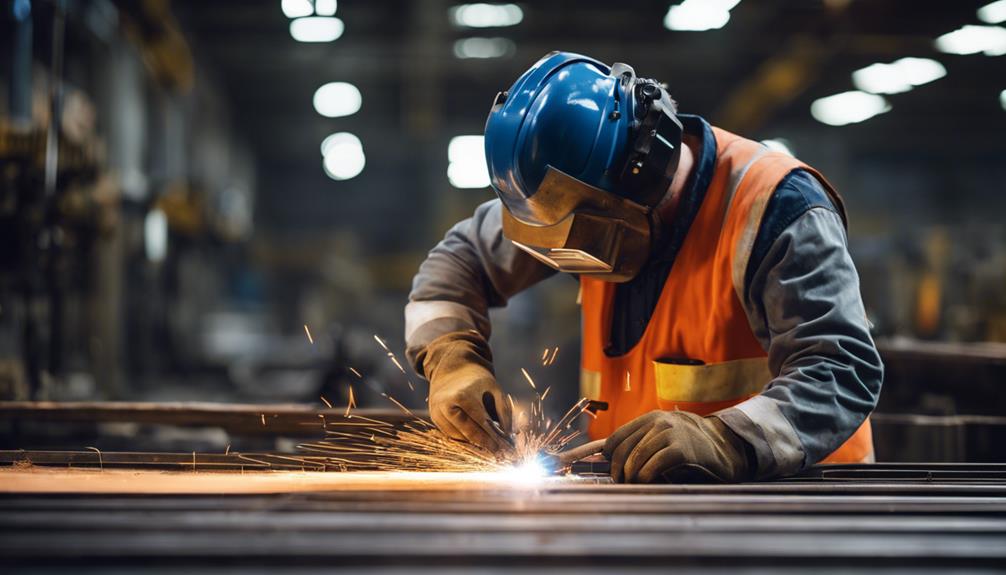
by Abdullah | May 17, 2024 | Steel Fabrication
Master successful industrial steel fabrication projects with these top 10 tips: meticulous material selection, precise design tolerances, ideal stock gauge choices, uniform bending techniques, strategic cost-effective strategies, and attention to bend reliefs and clearances for structural integrity. Employing advanced technology, quality enhancements, and adherence to industry guidelines guarantee high-quality results. Focusing on these key areas can elevate the success of your steel fabrication projects.
Key Takeaways
- Choose materials wisely for durability and aesthetics.
- Maintain tight design tolerances for precise results.
- Opt for cost-effective stock gauges in fabrication.
- Ensure uniform bends and proper bend radii.
- Pay attention to clearances for structural integrity.
Material Selection
Selecting the appropriate materials plays a crucial role in ensuring the longevity and performance of industrial steel fabrication projects. When it comes to material selection, the choice between stainless steel fabrication and marine-grade aluminum can have a substantial impact on the durability of the final product. For projects that are exposed to harsh outdoor elements, such as marine environments or extreme weather conditions, opting for marine-grade aluminum or stainless steel is highly recommended. These materials offer exceptional resistance to corrosion and rust, ensuring that the structure maintains its integrity over time.
In contrast, materials like copper, zinc, and brass are better suited for indoor decorative projects where they can add aesthetic value without being exposed to the same level of environmental stress. By carefully considering the specific requirements of a project and choosing materials accordingly, industrial steel fabrication projects can not only achieve longevity but also maintain their visual appeal and structural robustness. Proper material selection is a fundamental step in ensuring the success of any metal fabrication endeavor.
Design Tolerances
Understanding design tolerances is paramount in the field of steel fabrication, as they dictate the permissible variations in specified dimensions on blueprints. Design tolerances in steel fabrication refer to the allowable variations in dimensions specified on a blueprint. These tolerances play a vital role in determining the quality and functionality of the final product.
Tight tolerances increase the complexity and cost of fabrication processes but are necessary for achieving precise and accurate outcomes. Deviations from design tolerances can lead to structural integrity issues or functional problems, highlighting the importance of adherence to these specifications. Proper communication of design tolerances between designers and fabricators is essential for project success.
When searching for steel fabrication companies near me, it is crucial to inquire about their approach to design tolerances to make sure that your project requirements will be met accurately. Adhering to design tolerances is key to the successful completion of steel fabrication projects and the delivery of high-quality products.
Stock Gauges
Choosing appropriate stock gauges is a pivotal decision in sheet metal fabrication projects, impacting both cost-efficiency and design feasibility. Stock gauges, which refer to standard thickness options available for sheet metal fabrication, play a pivotal role in the success of a project.
Thicker metals come with limitations on achievable bend angles and may increase costs due to material expenses and processing requirements. On the other hand, thinner and more pliable metals are preferred for intricate fabrications to avoid issues like cracking during the fabrication process.
Selecting stock gauges wisely can lead to more cost-effective and efficient fabrication processes, benefiting both the steel fabrication company and the ultimate end-users, especially in industries like construction where precise and complex metal components are often required.
Standard stock gauges not only help in simplifying designs but also contribute to reducing overall project expenses, making them a key consideration in steel fab for construction projects.
Uniform Bends
To guarantee maximum efficiency and cost-effectiveness in industrial steel fabrication projects, maintaining uniform bends on the same plane is vital for streamlining the bending process. Machines have limitations in bending objects in different directions without reorienting, making it imperative to confirm all bends on the same plane bend in the same direction.
Keeping bends in the same radius not only saves money by reducing the need for extra steps in bending and reliefs but also minimizes complexities and streamlines the fabrication process. It is recommended to choose a radius equal to or greater than the metal thickness for the best folds, especially when working with thicker metals. Additionally, avoiding unnecessary small bends can help reduce costs and simplify the fabrication process further.
Consistency in bending orientation is key to optimizing the fabrication workflow and ensuring a seamless bending operation, ultimately contributing to the success of the steel fabrication project.
Simplified Folds
For enhanced cost-effectiveness and efficiency in sheet metal fabrication, simplifying folds is a strategic approach that can lead to significant savings. When choosing a radius equal to or greater than the metal thickness for bends, the result is better folds that are more cost-effective.
It is important to note that small bends on thick parts are less accurate and can actually increase fabrication costs. Additionally, complicated designs with multiple angles in bends can escalate project expenses due to the increased complexity involved.
Specific Clearances
Proper adherence to specific clearances plays a vital role in ensuring the structural integrity and longevity of components in industrial steel fabrication projects. Maintaining a minimum clearance of 1.5 times the material thickness between a hole and a bend is essential to prevent distortion during the fabrication process. These specific clearances are not arbitrary; they are designed to uphold material integrity and prevent issues such as cracking that can occur when clearances are not followed accurately.
Adhering to clearance guidelines goes beyond just preventing distortion; it greatly enhances the structural strength and durability of fabricated components. By ensuring that the correct clearances are maintained, the risk of material deformation or failure at connection points is reduced, contributing to the overall quality of the steel fabrication project.
Understanding and implementing specific clearances is fundamental for achieving precise and high-quality results in industrial steel fabrication, making it an indispensable aspect of the fabrication process.
Bend Reliefs
Bend reliefs play a crucial role in industrial steel fabrication projects, safeguarding against metal distortion or tearing during the bending process. By incorporating bend reliefs into the design of metal components, engineers can guarantee the structural integrity and quality of the final product.
These features are strategically placed to help maintain the material’s strength by preventing stress concentrations that could lead to failure. The size and shape of bend reliefs are carefully calculated based on factors such as material thickness and bending requirements.
Proper utilization of bend reliefs not only reduces the likelihood of defects but also enhances the overall durability of fabricated metal parts. Manufacturers rely on the implementation of bend reliefs to mitigate the risks associated with bending processes, ultimately contributing to the production of high-quality steel components that meet stringent industry standards.
Cost-Effective Strategies
To enhance cost efficiency in industrial steel fabrication projects, implementing strategic measures can lead to significant savings without compromising quality. Utilizing standard stock sizes can result in savings of up to 20% on metal costs by minimizing material waste and processing time.
Avoiding excessive tight tolerance call-outs is another cost-effective strategy as it reduces the need for precision machining, thereby lowering overall production expenses. Opting for thinner, more pliable metals can also contribute to cost savings since thicker materials may increase fabrication complexity and limit bending angles, leading to higher manufacturing costs.
Keeping bends in the same orientation and simplifying folds and angles in bends are additional ways to reduce expenses in industrial steel fabrication projects by streamlining production processes and minimizing the need for additional steps. By incorporating these cost-effective strategies, project managers can effectively manage expenses while maintaining the desired quality standards.
Quality Enhancement
Ensuring the highest standards of precision and accuracy is paramount in enhancing the quality of industrial steel fabrication projects. Quality enhancement in this field involves meticulous attention to detail, including precise cuts, accurate welds, and proper shaping techniques. Advanced technology, such as CNC machines, plays a pivotal role in improving the accuracy and efficiency of fabrication processes.
Rigorous quality control measures are essential for detecting and rectifying any defects or imperfections that may arise during fabrication. Regular inspections throughout the fabrication process help guarantee that the final products meet project specifications and adhere to industry standards. By focusing on quality enhancement strategies, Industrial Steel Fabrication projects aim to deliver durable, reliable, and high-quality steel products suitable for a wide range of industrial applications. Emphasizing quality not only meets client expectations but also contributes to the overall success and reputation of the project.
Adherence to Guidelines
Maintaining strict adherence to industry guidelines is essential for ensuring the quality, precision, and safety of industrial steel fabrication projects. Adherence to guidelines guarantees compliance with safety standards and regulations, reducing the risk of workplace accidents and ensuring the well-being of workers.
Following specific fabrication procedures is vital as it not only ensures product quality but also guarantees precision in the final output. Additionally, compliance with project specifications and requirements is key for achieving successful outcomes that meet client expectations. Adhering to design guidelines plays a significant role in preventing errors and rework, ultimately saving valuable time and resources.
Meeting structural standards and material specifications is paramount for the success of industrial steel fabrication projects, as deviations from these guidelines can compromise the structural integrity and overall quality of the final product. By strictly adhering to industry guidelines, fabricators can uphold the highest standards of excellence in their projects.
Frequently Asked Questions
What Are the 9 Ways to Better Fabrication?
Understanding material properties, equipment selection, quality control, employee training, and collaboration with experienced fabricators are key factors for enhancing fabrication outcomes. These facets contribute to improved efficiency, precision, safety, and overall success in industrial steel fabrication projects.
What Are the 3 Main Fabrication Techniques?
The three main fabrication techniques are cutting, forming, and welding. Cutting involves processes like shearing, sawing, or chiseling. Forming includes bending, rolling, and stamping. Welding joins metal pieces using techniques like MIG, TIG, or stick welding.
What Are the Basics of Steel Fabrication Process?
The basics of the steel fabrication process involve cutting, bending, and welding steel sheets to create structures and products. Tools such as laser cutting equipment, plasma cutters, and welding machines are essential, along with skilled workers and specialized equipment for quality results.
What Is the Most Important Quality in a Fabricator?
Expertise is the most critical quality in a fabricator, ensuring high-quality steel fabrication. Skilled professionals demonstrate precision in metal cutting, bending, and welding. Attention to detail, problem-solving skills, and a reputation for on-time, on-budget delivery are also essential for project success.
Conclusion
To sum up, successful industrial steel fabrication projects necessitate careful consideration of:
- Material selection
- Design tolerances
- Stock gauges
- Uniform bends
- Simplified folds
- Bend reliefs
- Cost-effective strategies
- Quality enhancement
- Adherence to guidelines
By following these top 10 tips, companies can guarantee efficient and effective fabrication processes that meet the highest standards of quality and precision.
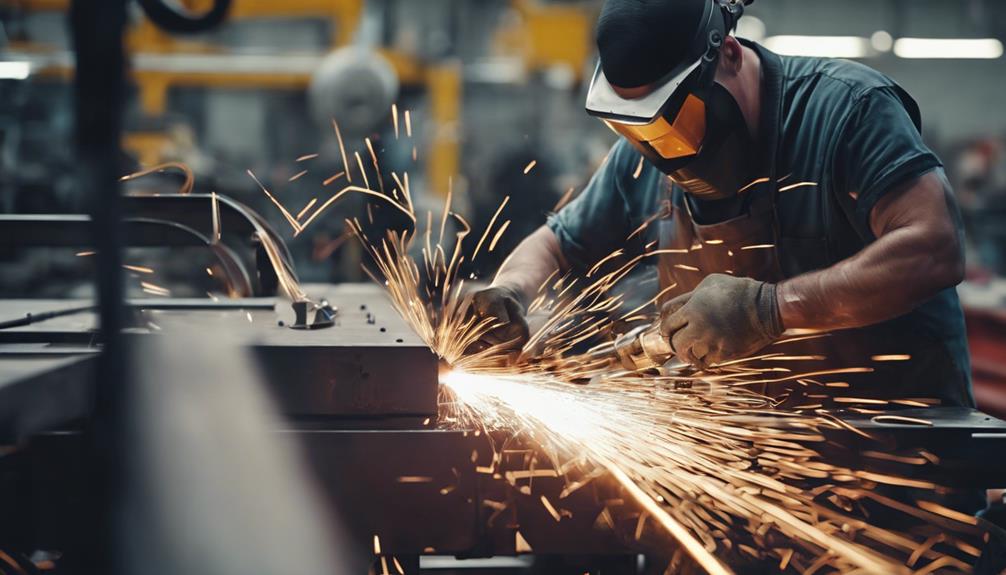
by Abdullah | Apr 26, 2024 | Steel Fabrication
Stainless steel excels in industrial steel fabrication due to its unparalleled durability, corrosion resistance, and environmental friendliness. It guarantees structures last longer, resisting corrosion and wear, making it ideal for harsh industrial environments. With over 150 grades available, stainless steel offers customized solutions for specific requirements, promoting efficiency and longevity in projects. The ease of fabrication allows for efficient cutting, bending, and assembly, leading to stringent quality standards in various applications. Discover more about the fire and heat resistance properties that make stainless steel a top choice in industrial settings.
Key Takeaways
- Unparalleled durability for prolonged lifespan of structures and equipment.
- Exceptional corrosion resistance in harsh industrial environments.
- Eco-friendly with high recycled content and recyclability.
- Versatile with over 150 grades tailored to specific requirements.
- Ease of fabrication for efficient cutting, bending, and assembly processes.
Durability of Stainless Steel in Fabrication
Using stainless steel in industrial fabrication guarantees unparalleled durability due to its exceptional resistance to corrosion, wear, and high temperatures. In the domain of industrial steel fabrication, where materials are exposed to harsh conditions and heavy usage, stainless steel emerges as a top contender due to its sturdy nature. Its ability to withstand corrosion from chemicals, moisture, and other environmental factors ensures that structures and equipment built with stainless steel have a prolonged lifespan. Additionally, the high resistance to wear means that components fabricated from stainless steel maintain their integrity even under constant friction or abrasive conditions, making them ideal for industrial settings.
Best Steel Fabrication Company
Another significant advantage of stainless steel in industrial steel fabrication is its capacity to endure high temperatures without compromising its properties. This characteristic makes it a preferred choice for applications where heat resistance is paramount, such as in manufacturing plants or processing facilities. The strength of stainless steel also plays a vital role in ensuring that structures do not bend or crack under pressure, providing a level of reliability that is essential in industrial operations.
Corrosion Resistance in Industrial Applications
With the addition of chromium in its composition, stainless steel exhibits exceptional corrosion resistance, making it a valuable asset in various industrial applications.
The critical layer created by chromium on the surface of stainless steel plays an essential role in protecting against corrosion in challenging industrial environments.
This unique property allows stainless steel to withstand corrosion better than many other materials, ensuring longevity and reliability in industrial settings.
Different grades of stainless steel offer varying levels of corrosion resistance, allowing industries to choose the most suitable option based on their specific needs.
Stainless steel’s ability to resist corrosion makes it an ideal choice for use in harsh and corrosive industrial environments where other materials may deteriorate rapidly.
The durability and longevity of stainless steel in industrial applications are significantly improved by its outstanding corrosion resistance, making it a preferred material for various fabrication needs.
Environmental Sustainability of Stainless Steel
In the domain of industrial fabrication, the environmental sustainability of stainless steel emerges as a pivotal factor influencing decision-making processes. Stainless steel is a standout choice for industrial steel manufacturing due to its eco-friendly properties. With stainless steel being made from 70% recycled material and being 100% recyclable, it notably reduces the need for new mining activities, thereby lessening the environmental impact of manufacturing processes.
This material’s long-term value proposition lies in its sustainability and recyclability, aligning with the principles of a circular economy. Over half of global stainless steel production originates from scrap metal, showcasing the industry’s commitment to sustainable manufacturing practices. Opting for stainless steel in industrial fabrication not only helps in reducing the carbon footprint but also contributes to a more sustainable future by promoting recycling and waste reduction.
Versatility of Stainless Steel Grades
Considering the myriad industrial applications and demands, the versatility of stainless steel grades plays a crucial role in meeting specific requirements with precision and efficiency. With over 150 grades available for various industrial applications, stainless steel offers a wide range of options for constructing industrial steel structures.
Different grades like 304, 316, and 430 provide specific properties such as corrosion resistance, heat resistance, and strength, making them ideal for different industrial fabrication needs. For instance, 304 stainless steel is commonly used in applications where corrosion resistance is paramount, while 316 stainless steel is preferred for its superior corrosion resistance in more challenging environments.
Each stainless steel grade is tailored to meet particular requirements regarding durability, flexibility, and environmental conditions, allowing for customization and optimization in industrial steel fabrication projects. This adaptability guarantees that the material used is precisely suited to the demands of the industrial steel structure, contributing to the overall efficiency and longevity of the project.
Ease of Fabrication with Stainless Steel
Stainless steel stands out as a material that offers exceptional ease of fabrication, making it highly suitable for a wide range of custom projects and manufacturing jobs that demand precision and quality. Industrial steel fabricators find stainless steel easy to work with due to its properties that allow for cutting, bending, and assembly processes to be carried out efficiently.
However, achieving the desired results requires the expertise and modern equipment of professional fabrication companies specializing in stainless steel. Not all industrial steel fabricators have the necessary resources or experience to work with stainless steel effectively, emphasizing the importance of selecting the right steel fabrication company for successful projects.
The ease of fabrication with stainless steel not only streamlines the manufacturing process but also guarantees that the final products meet stringent quality standards, making it a preferred choice for various industrial applications.
Fire and Heat Resistance Properties
An essential aspect of stainless steel in industrial applications lies in its exceptional resistance to fire and heat. High chromium and nickel-alloyed stainless steel grades exhibit excellent fire resistance properties, maintaining structural integrity even at high temperatures. This feature makes stainless steel well-suited for fire prevention applications where materials need to withstand extreme heat conditions.
Industries commonly utilize stainless steel in equipment such as boilers, valves, and heat exchangers due to its outstanding heat resistance capabilities. The heat-resistant alloys present in stainless steel guarantee durability and reliability in environments with elevated temperatures, providing a pivotal advantage for industrial settings where fire and heat resistance are paramount.
Frequently Asked Questions
What’s the Main Advantage of Stainless Steel?
The main advantage of stainless steel lies in its exceptional corrosion resistance, primarily attributed to the presence of chromium. This characteristic enables stainless steel to withstand harsh environments, ensuring long-term durability and minimal maintenance requirements.
Why Stainless Steel Is Used as Construction Material in Industries?
Stainless steel is favored as a construction material in industries for its exceptional durability, corrosion resistance, strength, impact resistance, heat resistance, aesthetic appeal, ease of fabrication, low maintenance requirements, and long-term value, making it a versatile and cost-effective choice for various industrial applications.
Is Stainless Steel Good for Industrial?
Yes, stainless steel is an excellent choice for industrial applications due to its high durability, corrosion resistance, tensile strength, impact resistance, and ability to withstand high temperatures. Its low maintenance needs and longevity also contribute to its suitability in industrial settings.
What Is the Main Advantages of Using Stainless Steel Instead of Mild Steel?
Stainless steel surpasses mild steel in corrosion resistance, strength, durability, heat resistance, and hygiene levels. Its chromium content enhances longevity, reduces maintenance costs, and guarantees compliance with strict cleanliness regulations. These attributes make it a superior choice for various industrial applications.
Conclusion
To sum up, the advantages of using stainless steel for industrial steel fabrication are significant. Its durability, corrosion resistance, environmental sustainability, versatility in grades, ease of fabrication, and fire and heat resistance properties make it a preferred choice in various industrial applications.
Stainless steel’s unique combination of properties makes it a reliable and long-lasting material for a wide range of industrial fabrication needs.
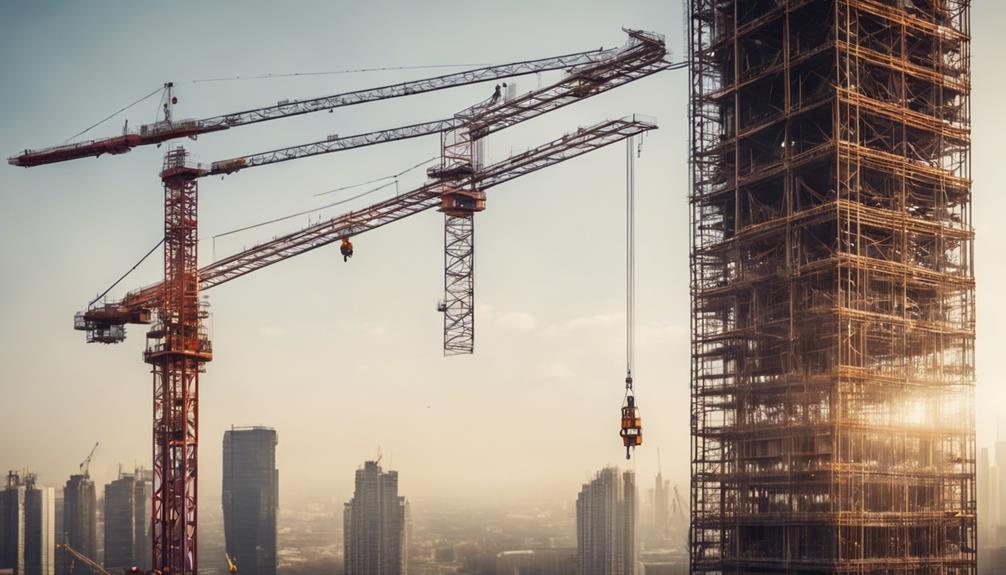
by Abdullah | Apr 5, 2024 | Steel Fabrication
Steel fabrication services are vital in industries like construction, energy, manufacturing, shipbuilding, automotive, and mining. Steel’s strength and durability make it indispensable for structural components in buildings, energy infrastructure, and vehicles. Its versatility allows customized components for various projects. Steel guarantees stability, longevity, and safety in different applications within these industries. If you want to explore how steel fabrication impacts these sectors further, discover the specific roles steel plays in construction projects, energy infrastructure, manufacturing processes, shipbuilding ventures, automotive advancements, and mining operations.
Key Takeaways
- Construction industry utilizes steel fabrication for structural components.
- Energy sector relies on steel for stability in infrastructure.
- Manufacturing sector benefits from steel for safety and efficiency.
- Shipbuilding industry depends on steel for structural integrity in vessels.
- Automotive sector uses steel for safety and performance in vehicles.
Steel Fabrication in Construction Industry
The construction industry heavily relies on steel fabrication services for the production of structural components essential for building projects. Structural steel is the material of choice in construction due to its exceptional strength and durability. Fabricated steel sections such as beams, girders, plates, and H-shaped sections are commonly used in construction projects to provide the necessary strength and stability to large structures. Architects, engineers, and contractors prefer steel for its versatility and ease of customization, allowing for innovative and complex designs to be realized efficiently.
Steel fabrication services play a pivotal role in the construction industry by enabling the creation of tailored steel components that meet project specifications. The use of steel in construction projects not only guarantees structural integrity but also contributes to faster project completion times, making it a preferred choice for builders and developers. The ability to fabricate steel into various shapes and sizes according to project requirements makes it an indispensable material in the construction sector.
Steel Fabrication in Energy Sector
Steel fabrication services are pivotal to the efficient functioning of the energy sector, playing a fundamental role in supporting various structures and components essential for energy infrastructure. Steel fabrication companies are vital for the production of structures like platforms, towers, and pipelines that are integral to the operations of the energy sector.
In the oil and gas industries, fabrication projects frequently involve steel components due to the material’s durability and strength. Additionally, steel is essential for supporting renewable energy sources such as wind turbines and transmission towers in the energy sector. The use of structural steel provides stability and longevity to energy infrastructure projects, ensuring their reliability and performance over time.
Given the heavy reliance of the energy sector on steel for its critical components, collaboration with steel fabrication companies is necessary to meet the sector’s demands for quality and durability in its infrastructure.
Steel Fabrication in Manufacturing Sector
Within manufacturing operations, the importance of steel fabrication services is indispensable for ensuring the structural integrity and efficiency of industrial equipment. Steel products such as ladders, platforms, stairs, handrails, and mezzanines play a vital role in enhancing safety and efficiency within the manufacturing sector.
The manufacturing industry heavily depends on steel fabrication services to guarantee the durability of essential industrial equipment like process tanks, mixing tanks, storage tanks, and utility carts. Major companies in the manufacturing sector, such as Procter and Gamble Philippines and Lazada Philippines, rely on steel in their production processes.
Steel fabrication services are essential for creating customized metal components that cater to the specific requirements of the manufacturing sector, ensuring that operations run smoothly and safely. The versatility and durability of steel make it a preferred material for manufacturing applications, highlighting the significant role of steel fabrication services in sustaining the efficiency and safety standards within the manufacturing sector.
Steel Fabrication in Shipbuilding Industry
Playing an essential role in maritime construction, Steel Fabrication Company are fundamental in ensuring the structural integrity and seaworthiness of vessels in the shipbuilding industry. Steel, being a primary material in shipbuilding, is used for constructing various vessels like supertankers, ferries, and recreational boats.
Common components such as flooring, grating, ladders, sections, and hull sheets are crafted from steel in the shipbuilding process. The durability and strength of steel make it indispensable for ship repair, maintenance, and military applications. From large commercial ships to smaller boats, steel is important in the construction and longevity of marine vessels.
The shipbuilding sector heavily relies on steel fabrication workshops to provide the necessary components for the vessels, ensuring they meet stringent quality standards and safety regulations. The precision and expertise offered by steel fabrication workshops are essential for the successful construction of seaworthy ships across various segments of the shipbuilding industry.
Steel Fabrication in Automotive Sector
The automotive industry’s demand for steel underscores its pivotal role as a foundational material in the sector’s production processes. Steel manufacturing plays a vital role in meeting the stringent safety standards and structural requirements of modern vehicles.
Accounting for 16% of globally manufactured steel, the automotive sector heavily relies on high-quality, lightweight, and strong steel to enhance performance and efficiency in cars. The steel used in the automotive industry is meticulously manufactured to be ductile and meet industry standards, ensuring the durability and safety of vehicles.
With a continuous focus on improving vehicle quality and safety measures, the consumption of steel in the automotive sector is on the rise. As technology advances and consumer expectations evolve, the automotive industry’s dependence on steel manufacturing is expected to further increase to meet the demands for innovative and reliable vehicles.
Steel Fabrication in Mining Industry
Steel plays a crucial role in supporting infrastructure and equipment within the mining industry. Stainless steel fabrication services are vital in the construction of office structures, warehouses, and various machinery used in mines. Essential components like rails, beams, and rods are commonly made from steel to withstand the demanding conditions of mining applications.
Smaller steel materials such as grating, pipes, and fittings are extensively utilized in day-to-day mining operations to ensure efficiency and safety. Iron ore, a fundamental element in steel production, is a significant mining export globally, highlighting the interconnectedness of the steel and mining industries.
The reliability and durability of stainless steel make it a preferred material for fabrication in the mining sector, where robust structures and equipment are essential for successful operations.
To sum up, steel fabrication services are vital for various industries such as construction, energy, manufacturing, shipbuilding, automotive, and mining. These industries depend on steel fabrication to produce bespoke structures, equipment, and components to meet their particular needs and requirements.
Steel fabrication plays an essential role in the advancement and expansion of these industries, contributing to their success and efficiency in providing top-notch products and services to their clients. Get in touch with us.
Frequently Asked Questions on Steel and Metal Fabrication Services
Which Industries Require Steel?
Steel is essential in numerous industries due to its strength, durability, and versatility. Sectors like construction, shipbuilding, automotive, mining, and energy heavily rely on steel for structural integrity and safety. Its applications range from buildings to vehicles, making it indispensable.
What Industries Use the Most Steel?
Industries like automotive, shipbuilding, mining, and construction heavily rely on steel due to its structural integrity, durability, and versatility. Steel plays an essential role in enhancing safety, supporting infrastructure, and enabling innovative designs across various sectors.
What Are the Uses of Steel Fabrication?
Steel fabrication serves various industries by providing durable, flexible, and structurally sound components for construction, mining, shipbuilding, and automotive sectors. Its uses include infrastructure, equipment, vessels, and safety reinforcements, enhancing strength and reliability in diverse applications.
What Is Fabrication in Different Industries?
Fabrication in various industries encompasses the creation of custom metal items such as process tanks, storage tanks, and structural components. This process guarantees the production of high-quality, durable, and customized metal products tailored to meet specific operational requirements.



